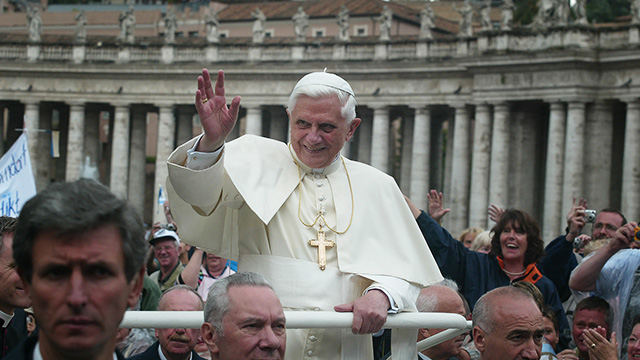Dear Friends,
The Catholic Church celebrated the funeral for Pope Benedict this past week. Since he was retired and not active as the pontiff at the time of his death, the event drew attention but not as one would expect for the funeral of a reigning pope.
Perhaps you watched or read some of the summaries of Benedict’s life that have appeared these past few days. I read much of what Pope Benedict wrote during his long career as a theologian and then as Pope. Unfortunately, I thought he was often misrepresented in the press. He was one of the better teachers and writers among recent Popes. I found him easy to read and understand, which was very different from his predecessor whose writings often left me scratching my head as to the point he was trying to make. Benedict focused his writings as Pope on Jesus and the Gospel.
The journalist John Allen wrote an interesting article a couple days ago where he pointed out the ironies in Pope Benedict’s leadership. He said, “for most of his career, Benedict had been seen as the great ‘Doctor No’ of the Catholic Church from his perch as the Vatican’s doctrinal czar. There was no controversy in Catholicism in which Cardinal Joseph Ratzinger didn’t play a leading role, usually as the disciplinarian taking wayward theologians to task. Yet once he became pope, Benedict pioneered ‘Affirmative Orthodoxy,’ meaning the most upbeat and positive presentation possible of classic Catholic teaching.” He emphasized the encounter with Jesus and the “yes” that is possible for everyone. “Christianity, Catholicism, isn’t a collection of prohibitions. It’s a positive option,” Benedict said in a 2006 interview. “We’ve heard so much about what is not allowed that now it’s time to say we have a positive idea to offer.”
The second irony that Allen mentions is while Benedict was primarily a teacher and not a manager, this non-manager launched historic management reforms on two key sources of scandal for Catholicism, child sexual abuse and the Vatican’s decidedly mixed record on money. He was the first pope to embrace a “zero tolerance” policy on abuse, and the first to open the Vatican to outside secular inspection of its accounts. Benedict faced down strong internal opposition to do so, and, by the end of his reign, officials opposed to reform on either front had been driven largely underground. Though incomplete at the time his papacy ended, both these house-cleaning operations have been carried forward under Pope Francis.
The last irony Allen mentions is that Benedict, sometimes seen as arrogant and aloof, was actually a man of striking personal humility. One example came immediately after he was elected, when Benedict insisted on returning to his Vatican apartment to gather his things and carry them back to the papal apartments. Before he left the building, he knocked on the doors of the other cardinals who lived there – not to say goodbye, since he’d obviously be seeing them again, but to thank the nuns who did the cooking and cleaning for being such good neighbors. Most bishops who had been to Rome over the years for their ad limina visits, would tell stories about how gently and kindly they were received by Ratzinger compared with other cardinals who ran the Roman Bureaucracy. Of course, Benedict’s voluntary abdication of power was arguably the single most humble act by a pope in centuries, if not of all time.
I am sure that Benedict’s writing over his 70+ years of service will last long into the future and will continue to guide the Church toward ever-deeper commitment to the mission of Jesus Christ.
Peace,
Fr. Damian



